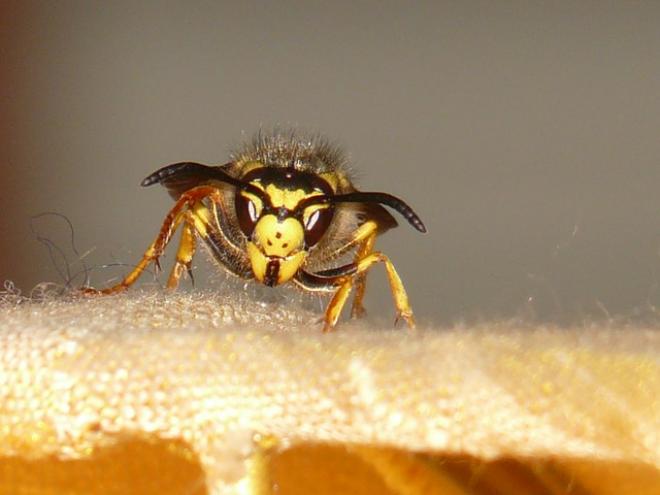The end of summer is the time when beekeepers must be preventive about pest insects - wasps and hornets, entering the hive.
Both are stealing honey and killing bees to feed their larvae, but wasps are more dangerous pests because they are carriers of infectious diseases of bees, and in some cases can lead to grapple of the apiary.

Hornets (Vespa crabro Latin) goal is to enter the hive and to feed on honey, and the easiest way is to enter through the entrance when fewer bees fly out for pasture. Hornets are powerful insects that inhabit trees and rooftops in smaller groups. Females make nests of chewed wood and lay their eggs in it.
The hive is an ideal place for nesting as there they can find everything they need: adult hornets feed on plant foods, so they eat nectar and honey, and since hornets feed their larvae with insects that will directly hurt worker bees. Therefore, in the inspection of bees, a beekeeper must also check the cover of the hive, where hornets like to build a nest for larvae. Upon finding a nest it must be destroyed with a chisel or a knife. Hornets can be prevented from entering the hive by putting a comb at the entrance.
Wasps (Latin Vespa Vulgaris) are also enemies of bees and abductors of food. They are more active in late summer and early autumn, because they have more brood that needs feeding, and fewer bees are defending the hive. Wasps enter the hive through the entrance or by finding cracks, and then steal honey. More rarely they attack bees in flight, bite their head off, and take their body to the nest as food for the larvae. Wasps often build their nests near the hive, and if their number is higher that can be devastating for the hive.
Although the strong colonies can defend against attacks, it is good to set traps for wasps as they can also carry diseases of bees. In the older literature what is recommended is the destruction of nests of wasps with boiling water, burning nests using kerosene or using insecticides, however, there is a straightforward and inexpensive solution. On every third hive, the beekeeper should put a clear plastic bottle half-filled with beer or apple vinegar with a little bit of sugar.
Attracted by the smell, wasps enter the bottle but can not get out. That smell is not appealing to the bees, the author of "Beekeeping work per month" Bozidar Vesković writes that using this simple method in 200 to 250 wasps caught, he found only one bee in the bottle.
Source: Agroklub
Image: Unsplash